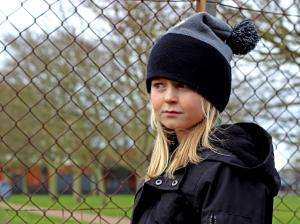‘Incessant churn’ of government has let down children and families, say Lords

Published by Professional Social Work magazine, 7 December, 2022
Badly implemented, poorly monitored and failing children with SEND and mental health issues – that’s the verdict on The Children and Families Act 2014, following a report presented in parliament.
The Children and Families Act 2014: A failure of implementation report was delivered at a Lords Select Committee after an inquiry into whether the Act is fit for purpose.
The ‘incessant churn’ of government and no focus on how the Act has been progressing was blamed for letting down children and families.
Launched with a goal of giving greater protection to vulnerable children and those with special educational needs and disabilities, the Children and Families Act has largely failed to achieve its aims, the report concludes.
Chair of the committee Baroness Tyler of Enfield, commented on the early promise of the Act: “Regrettably, our inquiry has shown that this could have been the case, had any real focus been on implementing and monitoring the impact of the Act, without the added incessant churn within the government.
“Instead, it was a missed opportunity and has ultimately failed in meaningfully improving the lives of children and young people.”
The report states: “When the systems we looked at, including education, family justice and social care, fail to provide adequate support, it is children and their families who bear the burden.”
Calling for greater early intervention, the report goes on: “It is clear to us that investing in early intervention results in better outcomes for children and young people. It can head off crises before they emerge, reducing the need for high-cost interventions later in the cycle. Despite the clear value of early intervention, it remained absent across many of the areas we looked at.”
The Act was also supposed to lead to greater help for the children of parents who are separating, and support for families with work/life balance, including progress on paternity leave and flexible working.
The Lords select committee heard how the “sheer breadth” of the Act, “poor data collection” to measure impact and “a lack of joined up action at all levels” means children and families feel let down by the system.
Steve Crocker, ADCS president, said: “This report underlines many of the challenges we’ve been raising for some time.
“Some of the reforms included here are having a real and tangible impact, such as the role of the virtual school head in supporting the education of children in care.
“Other reforms included in the Act have progressed less well, including those relating to special educational, needs and disabilities.
“Whilst mental health services were not covered in the reforms, the committee draws attention to the difficulties children and young people face in accessing timely support.
“ADCS has repeatedly raised the issue of children’s mental health and emotional wellbeing and the urgent need for a review of children’s mental health services - the current system is not working for children, and it threatens to overwhelm the social care system.”
Recommendations in the report include:
- Addressing delays in public family law cases
- Reviewing guidance setting out the approach judges take when meeting children, to empower the voice of the child
- Making 12-week paternity leave and flexible working a right for parents
- Producing a website for separating couples with clear information and general advice
- Improving data collection and sharing of information measure the success of an Act
- Improving post-placement support for adopters and kinship carers and addressing issues of racial disparity in the adoption system
